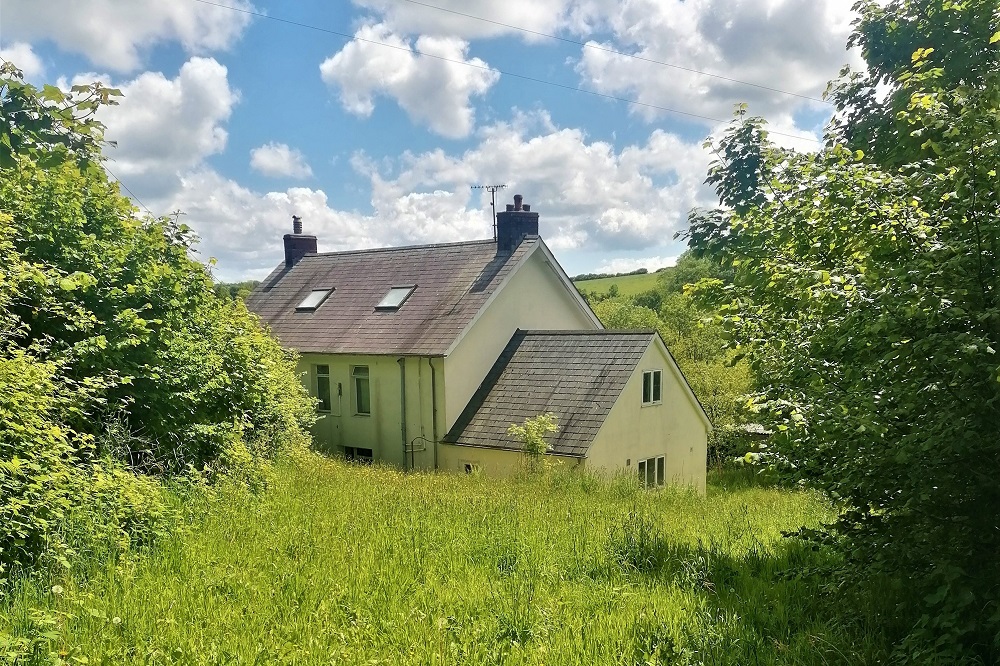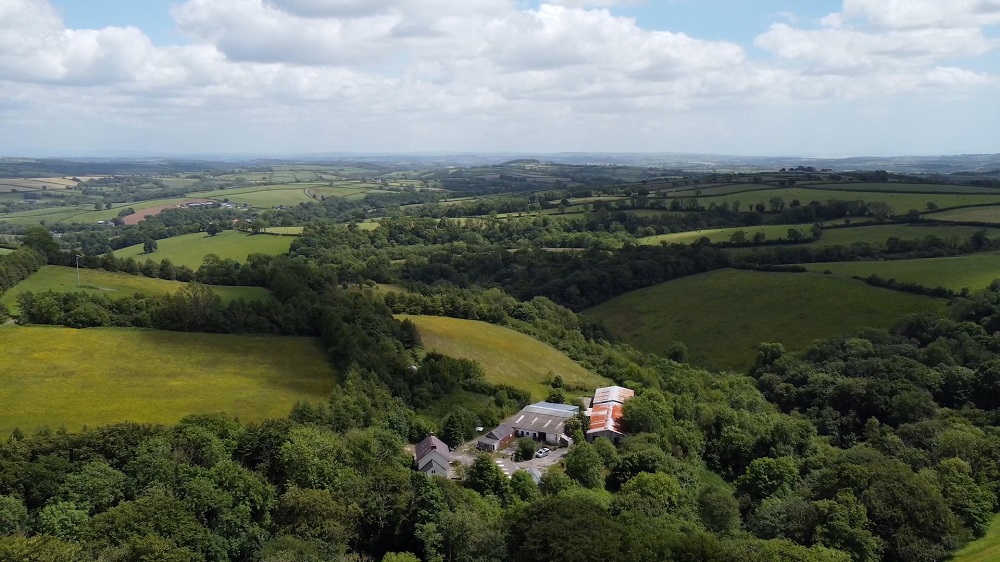Land Cooperative turns a touching legacy into a bright farming future

A land cooperative which was gifted a smallholding in Carmarthenshire has managed to raise £36,000 and are hoping to attract a local tenant.
It’s very hard for young people who are not brought up on the family farm to get into farming. And more often than not a farm will only support one sibling.
The Ecological Land Cooperative (ELC) was set up “to help new entrants into ecological agriculture by developing small holdings,” Luci Edwards tells Nation.Cymru
Originally from Machynlleth, Luci handles communication for the ELC and lives in Devon.
She continued: “What usually happens is that we buy some land and get planning permission to turn it into a small holding. Giving opportunities to new farmers is our main thing”
But in this case, Maesgwyn Isaf was gifted to the ELC by Jenn and Stuart Carter. Both had spent decades increasing biodiversity on the land and had planted 13,000 native trees around the edges of the pasture.
“The Carters didn’t have any children or close family and before they passed away, they were looking for an organisation to pass the farm to.
They wanted the same care of looking after nature to (continue) on the farm, and promoting ecological farming methods as well.”
The ELC took ownership of Maesgwyn Isaf during the summer of 2022.
An online Crowdfunder called ‘Help the ELC bring back Maesgwyn Isaf to Life’ went over and beyond what they had hoped, Luci said.
“In four weeks, we made about £36,000 –our aim was to raise £25,000. It was just amazing to get over that target – it was really nice that so many people supported us.”
Supporters came from far and wide, Luci said: “It was a good mix – some of it came from people who already support the cooperative. But there were quite a few people from around Carmarthenshire as well as south Wales.”
Some of the raised funds will go towards installing solar electric panels on the roof. This will help generate renewable energy for the grid, as well as providing an income to help with upgrading and maintain of farm buildings.

Maesgwyn Isaf has 47 acres of land, and the ELC have managed to buy a neighbouring field of 19 acres.
“We haven’t a finalised plan but my thought would be that there will be some livestock involved.”
Applications for the position of a land manager, and another person to work on upgrading the house and outbuildings have just recently closed. The ELC are now in the process of going through the applications, Luci explained.
“When we do select farmers we will prioritise applications from local people – either from south Wales or Wales in general. We operate on a 150-year lease so people can either buy the leasehold outright, or buy a bit of it and pay us back over time – which is what most people do.”
Problems
One of the problems facing people who want to start farming today, according to Luci, is that the average farm tenancy is only for five years.
“This doesn’t encourage anyone to put any effort into land management, or improving the land for wildlife, because they know they’re probably not going to be there after five years.”
The Ecological Land Cooperative has another site on the Gower Peninsula. Cae Tan farm is a Community Supported Agricultural Project where they grow and supply fresh and seasonal vegetables all year round.
They ELC also have farms in and around Devon and Cornwall.
Support our Nation today
For the price of a cup of coffee a month you can help us create an independent, not-for-profit, national news service for the people of Wales, by the people of Wales.





Beautiful…such things are the revolution we need.
Interesting initiative, but any one else having some difficulty in understanding how this is a bona fide co-operative if the ‘tenant’ does not enjoy common ownership of the land?
It can happen, The land and the buildings are seen as separate assets. in Japan I believe it is normal that they are separate. In the the UK there was the famous case of the Clays lane housing Co-op, which owned the properties, but not the Land, the council owned it and let them build on it. It housed 400 single people, the blocks were named after the Rochdale pioneers. They were a model Co-op and had a £2 million reserve fund. But the regulatory did not approve of the bottom up structure ( Co-op style) and forced them to… Read more »